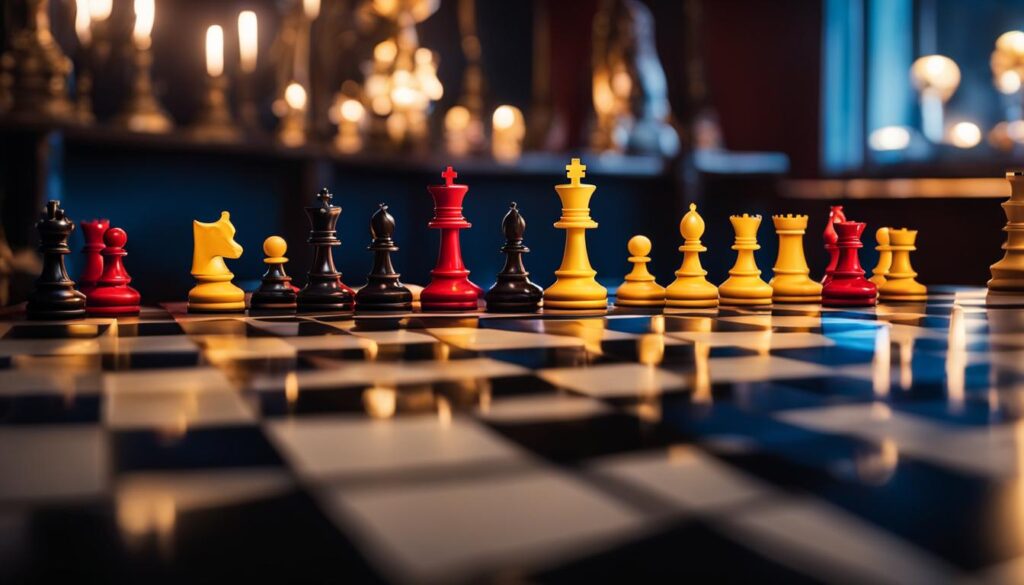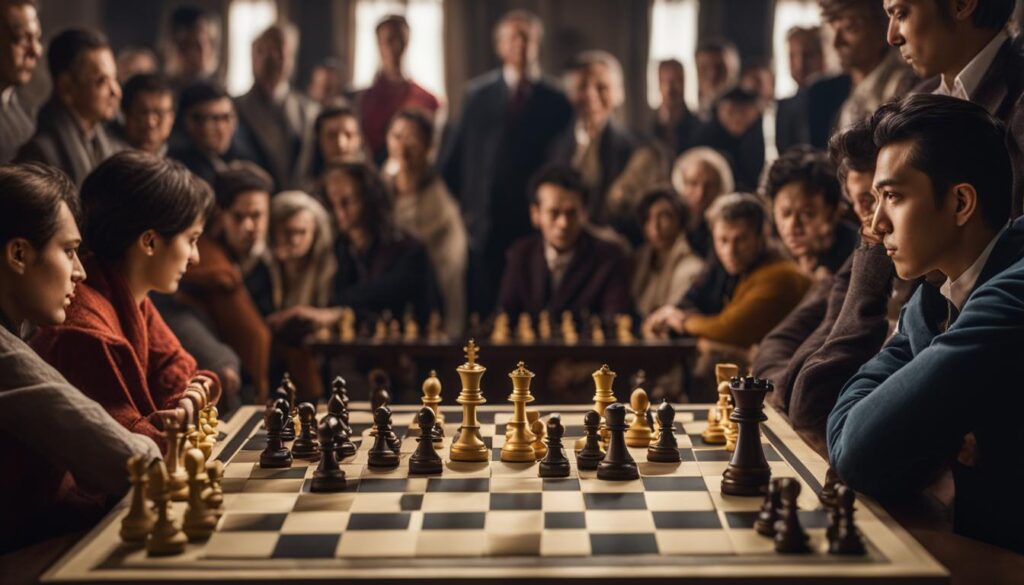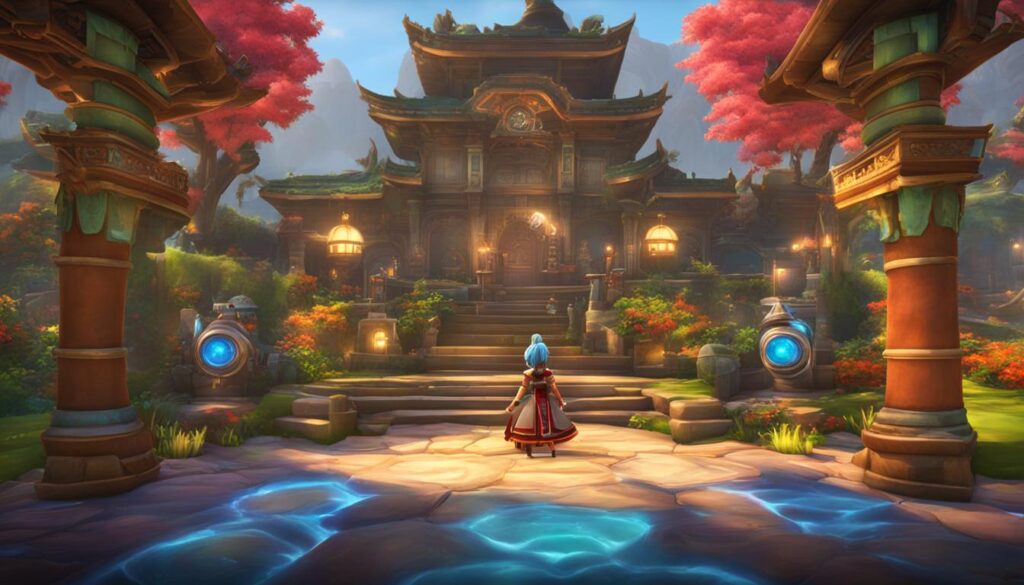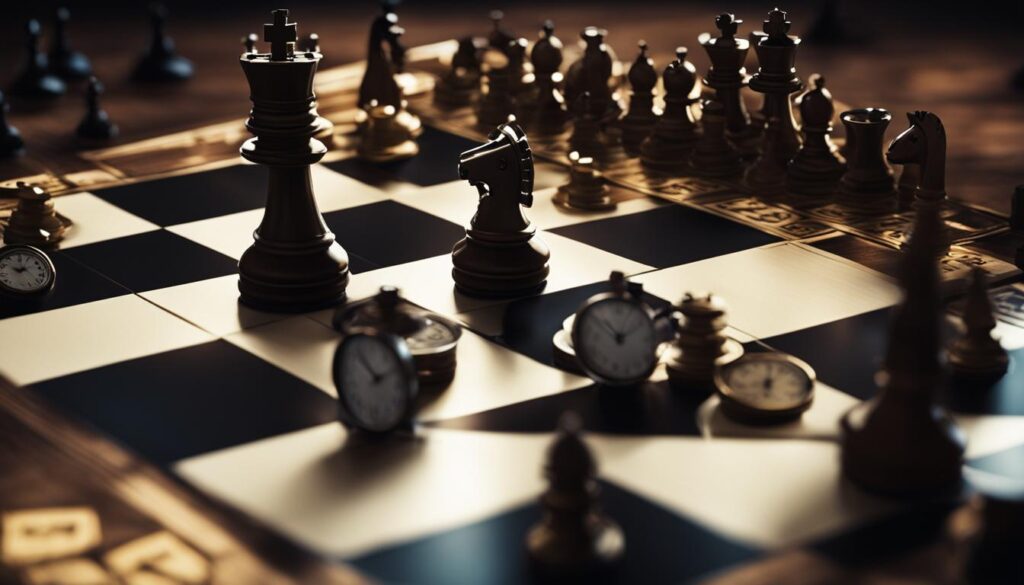We may earn money or products from the companies mentioned in this post.
Chess is a game of strategy, skill, and patience. It has been enjoyed by people of all ages and cultures for centuries. The endgame is the final stage of the game where both players have a few pieces left that they have to use to checkmate their opponents. Mastering endgame strategies is essential if you want to improve your overall game.
In this article, we will explore the concept of the Chess Endgame Strategies Session and its importance in improving your chess game. We will discuss essential endgame principles, advanced chess endgame techniques, strategies for winning in the chess endgame, professional chess endgame training, and practical endgame tips for chess players.
Key Takeaways
- Chess Endgame Strategies Session is crucial in improving one’s chess game.
- Mastering endgame strategies is essential for gaining an advantage in the final stages of the game.
- Understanding essential endgame principles can help elevate your performance.
- Advanced chess endgame techniques can outmaneuver opponents and secure victory.
- Effective moves, solid defense, and seizing opportunities are crucial for winning in the chess endgame.
Understanding the Chess Endgame
Chess is a game of strategy and tactics where players aim to outmaneuver their opponents and secure victory. While the opening and middle game phases are crucial, the endgame is equally important to determine the winner. In the endgame, only a few pieces remain on the board, making each move crucial.
To master the endgame, chess players must understand essential endgame principles and develop effective tactics. The following are some essential endgame principles in chess:
- King activity: The king becomes a powerful force in the endgame and should be activated to control key squares on the board.
- Pawn promotion: Pawns are critical in the endgame and can be promoted to a stronger piece if they reach the other end of the board.
- Passed pawns: Passed pawns are pawns that have no opposing pawns in their path, making them difficult to stop.
- Opposition: When two kings face off, it’s important to gain opposition, forcing the opponent’s king to move and allowing the other king to advance.
- Zugzwang: Zugzwang is a situation where any move a player makes weakens their position, and they are forced to make an unfavorable move.
In addition to these principles, chess players must develop effective endgame tactics. Some tactics used in the endgame include:
- Exchange sacrifice: This is when a player willingly gives up a piece to gain a strategic advantage.
- Outflanking: This is when a player redirects their pieces to attack from an unexpected direction.
- Undermining: This is when a player weakens the opponent’s pawn structure, making it easier to attack.
- Endgame traps: These are specific tactical sequences that can lead to a quick victory or draw.
To be successful in the endgame, players must understand these essential principles and develop effective tactics. In the next section, we’ll explore some advanced chess endgame techniques that can elevate a player’s performance.
Advanced Chess Endgame Techniques
The endgame in chess is a crucial phase of the game that requires a different set of skills and strategies than the opening and middle game. To truly excel in chess, players must master advanced chess endgame techniques that enable them to outmaneuver their opponents and secure victory.
Improving endgame play in chess requires a deep understanding of the game’s principles, creative thinking, and the ability to visualize potential outcomes. Here are some advanced chess endgame techniques that can elevate a player’s performance:
| Technique | Description |
|---|---|
| King and pawn endgames | Learning how to make the most out of your pawns and protect your king is crucial in any chess game. In this technique, you’ll learn how to use your king as an attacking piece and blockade your opponent’s pawns. |
| Rook endgames | In rook endgames, the placement of the pieces is critical. This technique will teach you how to control the board, create passed pawns, and force your opponent into making mistakes. |
| Minor piece endgames | Minor pieces, like knights and bishops, can be powerful assets in the endgame, especially when paired with pawns. This technique will teach you how to utilize your minor pieces to control the board and create threats. |
| Opposition | Opposition is a technique where the kings are placed on opposite sides of the board, with the goal of gaining control. In this technique, you’ll learn how to use opposition to cut off your opponent’s king and create a winning position. |
Mastering these techniques can take time and practice, but it’s worth the investment. When executed correctly, they can give you a significant advantage over your opponent.
Improving endgame play in chess isn’t just about learning advanced techniques. It’s also about developing a strong mental game. Maintaining focus, avoiding mistakes, and staying calm under pressure are critical to success in the endgame.
Remember, the endgame is where games are won and lost in chess. By mastering advanced endgame techniques and developing a strong mental game, you can become a formidable opponent and achieve success on the chessboard.
Strategies for Winning in the Chess Endgame
Winning in the chess endgame requires a combination of effective moves, solid defense, and the ability to seize opportunities. Here are some strategies that can help:
Create a Strong Defense
Building a strong defense in the endgame is critical. A solid defense prevents your opponent from gaining an advantage and puts you in a better position to win. Keep your pieces close to your king and use them to control key squares on the board. This will limit your opponent’s options and force them to make less advantageous moves.
Seize Opportunities
The endgame is all about seizing opportunities. Look for weaknesses in your opponent’s position and use them to your advantage. Whether it’s a weak pawn or an exposed king, capitalize on these weaknesses to gain an edge. Be patient and wait for the right moment to strike.
Make Effective Moves
Every move in the endgame counts, and making the right move can make all the difference. Focus on creating a plan of attack and executing it with precision. Avoid making passive moves that allow your opponent to gain the upper hand. Take risks when necessary, but be sure to calculate all possible outcomes before making a move.
Focus on the King
Protecting your king should always be a top priority in the endgame. Keep your king safe by moving it to a secure location and preventing your opponent from attacking it. At the same time, look for opportunities to attack your opponent’s king. In the endgame, a successful attack on the opponent’s king can often lead to a quick victory.
Control the Center
Controlling the center of the board is important in all stages of the game, but it’s especially crucial in the endgame. By controlling the center, you limit your opponent’s mobility and gain more space to maneuver your own pieces. Look for ways to control the center and use it to your advantage.
By following these winning chess endgame strategies and making effective chess endgame moves, you can dramatically improve your chances of winning. Remember, the endgame requires both patience and precision, so take your time and make every move count.
Professional Chess Endgame Training
For those looking to take their chess game to the next level, professional chess endgame training is a must. Whether you are an experienced player or just starting, gaining insight into advanced chess endgame techniques and strategies can make all the difference in winning games.
One of the best ways to receive professional training is through a chess endgame masterclass. These classes are often taught by experienced instructors and Grandmasters who have dedicated their careers to mastering the endgame.
| Benefits of Professional Chess Endgame Training: |
|---|
| 1. Expert guidance: Instructors provide expert guidance and advice on advanced chess endgame techniques and strategies. This can help players improve their gameplay and gain a competitive edge over their opponents. |
| 2. Practice: Chess endgame masterclasses provide ample opportunities to practice and apply the techniques learned. This gives players the chance to hone their skills and see immediate results in their gameplay. |
| 3. Networking: Participating in a chess endgame masterclass can provide players with the chance to network with other chess enthusiasts and professionals in the industry. This can lead to valuable connections, partnerships, and even career opportunities. |
Professional chess endgame training can be done online or in person, depending on the preferences of the player. Many chess academies, clubs, and organizations offer endgame masterclasses, making it accessible to players of all levels.
Overall, professional chess endgame training is an essential investment for any serious chess player looking to improve their skills and strategy. With expert guidance, ample practice opportunities, and the chance to network with other players, it is an invaluable way to elevate one’s gameplay and achieve success in the endgame.
Practical Endgame Tips for Chess Players
Mastering chess endgame tactics involves a combination of strategic thinking, strong decision-making skills, and precise execution. Here are some practical tips to improve your endgame play:
- Control the center: In the endgame, controlling the center of the board is crucial. It allows your pieces to have more mobility and influence over the board.
- Calculate variations: Endgame positions often involve complex combinations and variations. Calculating the possible outcomes and understanding the consequences of each move is essential to making the best decision.
- Utilize your pawns: Pawns can be powerful tools in the endgame. Use them to create passed pawns that can be promoted into stronger pieces, and to restrict your opponent’s mobility.
- Activate your king: In the endgame, the king becomes a valuable piece that can help control the board and support your other pieces. Bringing your king to an active position can give you an advantage over your opponent.
- Don’t neglect your minor pieces: While pawns and kings are important in the endgame, don’t forget about your minor pieces. A well-placed bishop or knight can be the key to securing a victory.
By incorporating these practical tips into your chess endgame strategy, you can improve your chances of outmaneuvering your opponent and achieving victory.
Conclusion
Chess is a game that requires strategy and skill, and mastering the endgame is crucial for success. By participating in a Chess Endgame Strategies Session, players can learn the tactics and techniques needed to secure victory in the endgame.
Throughout this article, we’ve discussed the importance of understanding essential endgame principles, exploring advanced endgame techniques, and implementing winning strategies. We’ve also highlighted the benefits of professional chess endgame training and provided practical tips for improving endgame play.
Don’t miss out on the opportunity to enhance your chess endgame skills and strategy. Sign up for a Chess Endgame Strategies Session today and take your game to the next level!
FAQ
What is a Chess Endgame Strategies Session?
A Chess Endgame Strategies Session is a focused training session designed to help chess players enhance their skills and understanding of the endgame phase of the game.
Why is understanding the chess endgame important?
The chess endgame is a critical phase of the game where players must employ effective tactics to gain an advantage and secure victory. Understanding the endgame allows players to make informed decisions and outmaneuver opponents.
What are some advanced chess endgame techniques?
Advanced chess endgame techniques include tactics like zugzwang, triangulation, and king and pawn endgames. These techniques are used by experienced players to outsmart opponents and achieve favorable outcomes in the endgame.
What strategies can I use to win in the chess endgame?
Strategies for winning in the chess endgame involve making effective moves, creating a solid defense, and seizing opportunities to gain an advantage over the opponent. It is important to understand key principles and adapt to the specific situation on the board.
Why should I consider professional chess endgame training?
Professional chess endgame training offers the opportunity to learn from experienced instructors and participate in focused masterclasses. This type of training can significantly enhance your skills and understanding of the endgame, leading to improved performance in games.
What are some practical endgame tips for chess players?
Practical endgame tips for chess players include avoiding common mistakes, such as neglecting pawn structure and misjudging the value of exchanges. It is important to keep key principles in mind, such as king activity and pawn promotion, and practice specific techniques through solving puzzles and analyzing games.
How can participating in a Chess Endgame Strategies Session benefit me?
Participating in a Chess Endgame Strategies Session can significantly enhance your chess endgame skills and strategy. It provides focused training, expert guidance, and the opportunity to practice and apply new techniques in a supportive environment.
Affiliate Disclosure: This post may contain affiliate links. If you purchase through our link, we may receive a small commission, but at no additional cost to you. For more information, please see our Disclosure statement.



